
To understand how to prepare for your chosen career in natural resources or environmental management, one of the simplest things you can do is check the federal qualifications for your preferred career path. The Office of Personnel Management (OPM) has determined education and experience requirements for thousands of job families (“occupational series”) that you can use as a template for becoming a qualified entry level candidate in your field, whether or not you ultimately intend to seek employment in federal service. Although OPM is continuously retiring outmoded occupational series, their standards are still useful as a general planning tool. As you explore some of the careers listed here, make sure you verify the qualifications with OPM to see if they have been updated since this guide was developed. Once you are ready to apply to openings, see Federal Hiring Basics for a helpful overview of the federal hiring process.
Land Management
General Natural Resources Management and Biological Sciences: 0401
Rangeland Management: 045
Realty Specialist: 1170
Geography: 0150
Cartography: 1370
Land Surveying: 1373
Survey Technical: 0817
Soil Conservation: 0457
Archeology: 0193
Parks & Recreation
Outdoor Recreation Planning: 0023
Park Ranger: 0025
Guide: 0090
Forestry
Water Management
Geoscience
Wildlife & Fisheries
Wildlife Biology: 0486
Fish Biology: 0482
Ecology: 0408
Wildlife Refuge Management: 0485
Management and Policy
Management and Program Analysis: 0343
Grants Management: 1109
Environmental Protection Specialist: 0028
Misc. Administration and Program: 0301
Career Paths

General Natural Resources Management and Biological Sciences
This series contains several occupations within natural resource management: biologists, NEPA planners, environmental coordinators, interdisciplinary researchers, and others.
What are the education requirements? (Verify with OPM: 0401)
General Natural Resources Management Requirements
| Grade | Education Requirement |
|---|---|
| GS03 | One year of higher education |
| GS04 | Two years of higher education |
| GS05 | A four year degree in biological sciences, agriculture, natural resource management, chemistry or a related discipline |
| GS07 | The same four year degree with Superior Academic Achievement (SAA) OR One year of related graduate education |
Which majors at Boise State University can fulfill these requirements?
Recommended minors include
What does competitive experience look like?
- Assisting in the preparation of environmental assessments or environmental impact statements; or, evaluating compliance with environmental laws and regulations; or, performing field work to identify existing environmental conditions and factors that could impact those conditions.
Where can I gain relevant experience?
- Bureau of Land Management – Resource Assistant Internships
- Public Lands Foundation Biennial Student Congress
- Idaho Department of Lands – Temporary job openings
- America’s Natural and Cultural Resources Volunteer Portal
- National Parks Service – Research Learning Center Internships & Fellowships
- River Management Society – Job Board
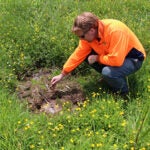 Rangeland Management
Rangeland Management
Careers in range management involve monitoring changes to rangeland health (e.g., grazing impacts, invasive species), preparing livestock management plans, and working closely with permittees to ensure compliance with management plans. Positions vary in the level of field work required, but most involve some work outdoors in rough terrain.
What are the education requirements?
(Verify with OPM: 0454)
Rangeland Management Requirements
| Grade | Education Requirement |
|---|---|
| GS03 | One year of higher education |
| GS04 | Two years of higher education |
| GS05 | A four year degree, including
|
| GS07 | The same four year degree with Superior Academic Achievement (SAA) OR One year of related graduate education |
Which majors at Boise State University can fulfill these requirements?
- Boise State University does not currently offer a major that can fulfill these requirements.
- Boise State University students interested in careers in rangeland management can qualify for GS-03 and GS-04 openings for range technicians with relevant coursework offered at Boise State.
- Biology and Chemistry meet the requirements of closely related occupations (see: General Natural Resources Management and Biological Sciences).
What does competitive experience look like?
- Assist with grazing applications and permits, on-the-ground use supervision, plan and conduct range studies, plan range & watershed improvements, conduct trespass investigations, consult with livestock operators & prepare land use planning documents.
Where can I gain relevant experience?
- Bureau of Land Management – Resource Assistant Internships
- Idaho Conservation Corps – Young Adult Programs
- Student Conservation Association – Internships & Jobs
- Public Lands Foundation Biennial Student Congress
- Idaho Department of Lands – Temporary job openings
- America’s Natural and Cultural Resources Volunteer Portal
- River Management Society – Job Board
- Land Trust Alliance – Land Trust Job Board
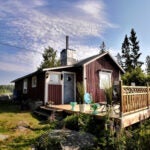 Realty Specialist
Realty Specialist
Realty specialists acquire, manage and dispose of property as part of public lands programs and water projects, for use in office changes or expansions, special purposes, or for general storage space (OPM, 1993).
A valid driver’s license may be required.
What are the education requirements?
(Verify with OPM: 1170)
Realty Specialist Requirements
| Grade | Education Requirement |
|---|---|
| GS03 | One year of higher education |
| GS04 | Two years of higher education |
| GS05 | A four year degree |
| GS07 | The same four year degree with Superior Academic Achievement (SAA) OR One year of related graduate education with at least one course in outdoor recreation |
Which majors at Boise State University can fulfill these requirements?
Any major is acceptable, however recommended majors include
- Urban Studies and Community Development
- Construction Management
- Civil Engineering
- Environmental Studies
- Business Administration BBA
Recommended minors include
- Geospatial Information Analysis Minor
- Urban Studies and Community Development Minor
- Environmental Studies Minor
- Sustainability Minor
What does competitive experience look like?
- Assist with processing outgrants, ingrants, and disposals.
- Assist with preparing documents and notices involved in request for leases, permits and licenses.
- Assist in the preparation and research of real estate contract documents and reports.
- Maintain electronic real estate documents.
Where can I gain relevant experience?
- Bureau of Land Management – Resource Assistant Internships
- Idaho Conservation Corps – Young Adult Programs
- Student Conservation Association – Internships & Jobs
- Public Lands Foundation Biennial Student Congress
- Idaho Department of Lands – Temporary job openings
- America’s Natural and Cultural Resources Volunteer Portal
- Land Trust Alliance – Land Trust Job Board
 Geography
Geography
Geographers gather and integrate geographic information from field observations, satellite imagery, photographs, maps and other sources. They may conduct qualitative research to better understand local populations and stakeholders, write articles and reports, and assist or lead others in using and interpreting GIS and geographic data (Bureau of Labor Statistics, Geography, 2018).
What are the education requirements?
(Verify with OPM: 0150)
Geography Requirements
| Grade | Education Requirement |
|---|---|
| GS03 | One year of higher education |
| GS04 | Two years of higher education |
| GS05 | A four year degree in geography, or a related physical or social science such as geology, meteorology, economics, statistics, sociology, anthropology, political science, history, cartography, computer science, urban studies, or planning that included at least 24 semester hours in geography or related fields. |
| GS07 | The same four year degree with Superior Academic Achievement (SAA) OR One year of related graduate education with at least one course in outdoor recreation |
Which majors at Boise State University can fulfill these requirements?
With 24 credit hours in geography and related courses, these majors will fulfill education requirements:
- Geosciences
- Economics
- Sociology
- Anthropology
- Political Science
- History
- Computer Science
- Urban Studies and Community Development
Recommended minors include
- Geospatial Information Analysis Minor (This minor meets 12 of 24 required geography credit hours.)
- Urban Studies and Community Development Minor
- Environmental Studies Minor
- Sustainability Minor
What does competitive experience look like?
- Involvement in the collection and identification of geographic information concerning the exact location and place names of physical and cultural features, population changes during a specified time period in a given place or area, and changes in topographic features.
Where can I gain relevant experience?
- Bureau of Land Management – Resource Assistant Internships
- Idaho Conservation Corps – Young Adult Programs
- Student Conservation Association – Internships & Jobs
- Public Lands Foundation Biennial Student Congress
- Idaho Department of Lands – Temporary job openings
- America’s Natural and Cultural Resources Volunteer Portal
- River Management Society – Careers
- River Management Society – Job Board
- The GIS Jobs Clearinghouse – GIS/RS Jobs
 Cartography
Cartography
Cartographers collect and interpret geographic information to create and update maps. They integrate data from geodetic surveys, aerial and satellite remote sensing systems, and LIDAR systems to develop highly detailed, accurate maps (Bureau of Labor Statistics, Cartography 2017).
What are the education requirements?
(Verify with OPM: 1370)
Cartography Requirements
| Grade | Education Requirement |
|---|---|
| GS03 | One year of higher education |
| GS04 | Two years of higher education |
| GS05 | A four year degree in cartography or major that included30+ hours in cartography and/or astronomy, geodesy, photogrammetry, physical and geological oceanography, computer science, land surveying, geophysics, physical geography, and remote sensing, including
Between 6 and 15 hours of college level mathematics or statistics (e.g., college level algebra, trigonometry, calculus, or scientific mathematics or statistics requiring equivalent college-level courses as prerequisites) |
| GS07 | The same four year degree with Superior Academic Achievement (SAA) OR One year of related graduate education |
Which majors at Boise State University can fulfill these requirements?
With the 30+ credit hours of required coursework, these majors will fulfill education requirements:
- Geosciences with geophysics emphasis
- Civil Engineering
Recommended minors include
- Geospatial Information Analysis Minor (This minor meets 15 of 30 required credit hours, including 3 of 6 credit hours for math and statistics.)
- Geophysics Minor (This minor meets 20 of 30 required credit hours, with 0 of 6 required credit hours for math and statistics.)
- Computer Science Minor (This minor provides 25 of 30 required credit hours. You might add GEOG 360 Introduction to GIS and GEOG 361 Remote Sensing to meet occupational education requirements.)
What does competitive experience look like?
Performing a series of sequential tasks/steps for standardized or prescribed operations involving one or more stages of the map or chart making process (e.g., orienting stereo plotting instruments to develop expertise, compiling less difficult map or chart manuscripts, or drafting and scribing maps or charts).
Where can I gain relevant experience?
- Bureau of Land Management – Resource Assistant Internships
- Idaho Conservation Corps – Young Adult Programs
- Student Conservation Association – Internships & Jobs
- Public Lands Foundation Biennial Student Congress
- Idaho Department of Lands – Temporary job openings
- America’s Natural and Cultural Resources Volunteer Portal
- River Management Society – Careers
- River Management Society – Job Board
- The GIS Jobs Clearinghouse – GIS/RS Jobs
- Land Trust Alliance – Land Trust Job Board
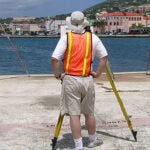
Survey Technical
Seasonal and permanent positions under this occupational series are plentiful in the West and can provide surveying experience equally relevant to positions in the land surveying series.
What are the education requirements?
(Verify with OPM: 0817)
Survey Technical Requirements
| Grade | Education Requirement |
|---|---|
| GS03 | One year of higher education |
| GS04 | Two years of higher education |
| GS05 | A four year degree in a related discipline (e.g., construction management, civil engineering) or 24+ semester hours in surveying, engineering, industrial technology, construction, physics, drafting, forestry, geography, navigation, cartography, physical science, or mathematics. |
| GS07 | The same four year degree with Superior Academic Achievement (SAA) OR One year of related graduate education |
Which majors at Boise State University can fulfill these requirements?
- Civil Engineering
- Construction Management
- Any major with the addition of the 24 required credit hours
What does competitive experience look like?
- Experience working in any professional, technical, or other responsible field that provided you with a familiarity of land surveying techniques.
- Serving as rodman on surveys requiring special rodding procedures, using any of various types of rods, and selecting measuring or turning points in consideration of terrain and demands of the type of survey involved.
- Serving as pacer of a leveling party.
- Going ahead of the party and determining in advance the positions the road crew will occupy so that shots will be balanced and instruments can be kept level.
Where can I gain relevant experience?
- Bureau of Land Management – Resource Assistant Internships
- Idaho Conservation Corps – Young Adult Programs
- Student Conservation Association – Internships & Jobs
- Public Lands Foundation Biennial Student Congress
- Idaho Department of Lands – Temporary job openings
- America’s Natural and Cultural Resources Volunteer Portal
- River Management Society – Careers
- River Management Society – Job Board
- The GIS Jobs Clearinghouse – GIS/RS Jobs
- Land Trust Alliance – Land Trust Job Board
 Land Surveying
Land Surveying
“Surveyors make precise measurements to determine property boundaries. They provide data relevant to the shape and contour of the Earth’s surface for engineering, mapmaking, and construction projects.” (Bureau of Labor Statistics, 2017)
What are the education requirements?
(Verify with OPM: 1373)
Land Surveying Requirements
| Grade | Education Requirement |
|---|---|
| GS03 | One year of higher education |
| GS04 | Two years of higher education |
| GS05 | A four year degree in land surveying or civil engineering with a surveying emphasis, including
|
| GS07 | The same four year degree with Superior Academic Achievement (SAA) OR One year of related graduate education |
Which majors at Boise State University can fulfill these requirements?
Boise State University does not offer all coursework to fulfill these requirements at this time, as no land law course is currently offered. A state land surveyor’s license can substitute for this education, however. Land surveying licensure in Idaho requires 4 years of land surveying experience and passage of an exam on land surveying fundamentals.
The Survey Technical occupational series provides an entry point to gain relevant surveying experience with coursework requirements that can be met at Boise State.
What does competitive experience look like?
- Assisting in verification of survey data including measurements and calculations conducted as survey sites.
- Preparing data, charts, plots, maps, records and documents related to surveys.
- Using specialized instruments including transit theodolites, altimeters, and GPS systems.
Where can I gain relevant experience?
- Bureau of Land Management – Resource Assistant Internships
- Idaho Conservation Corps – Young Adult Programs
- Student Conservation Association – Internships & Jobs
- Public Lands Foundation Biennial Student Congress
- Idaho Department of Lands – Temporary job openings
- America’s Natural and Cultural Resources Volunteer Portal
- River Management Society – Careers
- River Management Society – Job Board
- The GIS Jobs Clearinghouse – GIS/RS Jobs
- Land Trust Alliance – Land Trust Job Board
 Soil Conservation
Soil Conservation
Soil scientists collect and examine soil samples to improve agricultural processes and develop environmental assessments. Soil scientists with a Bachelor’s degree generally spend most of their working hours engaged in fieldwork, while those with higher level degrees spend more hours working in the lab.
What are the education requirements?
(Verify with OPM: 0457)
Soil Conservation Requirements
| Grade | Education Requirement |
|---|---|
| GS03 | One year of higher education |
| GS04 | Two years of higher education |
| GS05 | A four year degree in soil conservation or related agricultural or natural resource discipline such as agronomy, soil science, forestry, agricultural education, or agricultural engineering OR 30 semester hours in a natural resource or agricultural field, including 12+ semester hours in a combination of soils and crops or plant science, including
|
| GS07 | The same four year degree with Superior Academic Achievement (SAA) OR One year of related graduate education |
Which majors at Boise State University can fulfill these requirements?
With required coursework, this major can fulfill requirements:
Recommended coursework:
- GEOS 451 Principles of Soil Science
- Three plant science courses from:
BOT 305 Systematic Botany, BOT 401 Plant Physiology, BOT 424 Plant Community Ecology, BOT 430 Molecular and Cellular Biology of Plants, BOT 441 Plant Developmental Biology - 18 credits in a natural resources field:
- GEOS 212 Water in the West, GEOG 321 Sustainability of Natural Resources, BIOL 323 Ecology, BIOL 422 Conservation Biology, BIOL 435 Ecosystem Ecology, BIOL 433 Principles of Fisheries and Wildlife Management, ECON 333 Natural Resource Economics
What does competitive experience look like?
- Experience working in a specialized natural resource or agricultural field such as soil science, forestry, agronomy, or soil conservation.
Where can I gain relevant experience?
- Bureau of Land Management – Resource Assistant Internships
- Idaho Conservation Corps – Young Adult Programs
- Student Conservation Association – Internships & Jobs
- Public Lands Foundation Biennial Student Congress
- Idaho Department of Lands – Temporary job openings
- America’s Natural and Cultural Resources Volunteer Portal
- River Management Society – Careers
- River Management Society – Job Board
- Land Trust Alliance – Land Trust Job Board
- National Parks Service – Research Learning Center Internships & Fellowships
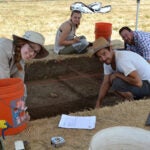
Archeology
Archeologists collect and analyze samples and data to better understand the archeological remains of human settlements and natural ecosystems. They record field observations, prepare reports, and present research. Some may manage cultural resource and historical preservation programs (Bureau of Labor Statistics, 2018).
What are the education requirements?
(Verify with OPM: 0193)
Archeology Requirements
| Grade | Education Requirement |
|---|---|
| GS03 | One year of higher education with related coursework |
| GS04 | Two years of higher education with related coursework |
| GS05 | A four year degree, including Three credit hours each in
|
| GS06 | One year of related graduate education |
Which majors at Boise State University can fulfill these requirements?
With required coursework, this major can fulfill education requirements:
Recommended coursework:
- Anth 303 History and Theory in Anthropology
- Anth 312 Prehistory of North America or Anth 320 Latin American Prehistory
- Anth 420 Geoarcheology or Anth 418 Quantitative Field Methods
- Anth 490 Archeological Field School
- Six semester hours in geography, geology, or cultural geography; history, historiography, or historical archeology; environmental studies; scientific writing (nonfiction English composition); and/or surveying.
What does competitive experience look like?
- Assisting with on-the-ground field studies to identify cultural, historic and/or paleontological resources and reporting findings to supervisor; and using designated, well established guidelines to compute, compile, and present archaeological data in field notes. (GS-4)
- Assisting professional archaeologist in performing actual field studies; and carrying out field studies to identify cultural, historic and/or paleontological resources for planning systems regarding cultural resources. (GS-5)
Where can I gain relevant experience?
- USAJOBS.gov – Temporary Archeological Aid/Technician Openings
- NPS & National Council for Preservation Education – Historic Preservation Internships
- Student Conservation Association – Internships & Jobs
- America’s Natural and Cultural Resources Volunteer Portal
- River Management Society – Careers
- River Management Society – Job Board
- Land Trust Alliance – Land Trust Job Board
- National Parks Service – Research Learning Center Internships & Fellowships

Outdoor Recreation Planning
Outdoor recreation planners design recreation programs, recommend recreation activities appropriate for the land, write environmental reports, and manage and suggest improvements for current recreation facilities. They generally work in an office and in the field. Their day-to-day work requires both project management and communication skills.
What are the education requirements?
(Verify with OPM: 0023)
Outdoor Recreation Planning Requirements
| Grade | Education Requirement |
|---|---|
| GS03 | One year of higher education |
| GS04 | Two years of higher education |
| GS05 | A four year degree in outdoor recreation planning, sociology, forestry, landscape architecture, economics, biological science, park administration, earth science, natural resource management and conservation, civil engineering, urban planning, or recreation. |
| GS07 | The same four year degree with Superior Academic Achievement (SAA) OR One year of related graduate education |
Which majors at Boise State University can fulfill these requirements?
- Sociology
- Biology
- Geosciences
- Civil Engineering
What does competitive experience look like?
- Experience that provided a knowledge of the requirements and practices of outdoor recreation planning or natural resource utilization and conservation.
- Analysis and evaluation of outdoor recreation interests, habits, and needs of diversified groups, and the means for meeting those needs.
- Evaluation of land or water areas for their recreation and related potential use, such as wildlife reserve.
- Preparation or review of plans and programs for natural resource utilization and recreation area development.
- Solution of administrative, intergovernmental, socioeconomic, and other problems involved in providing adequate recreation opportunities while preserving, restoring, and enhancing the quality of the outdoor environment.
Where can I gain relevant experience?
- Bureau of Land Management – Resource Assistant Internships
- Idaho Conservation Corps – Young Adult Programs
- Student Conservation Association – Internships & Jobs
- Public Lands Foundation Biennial Student Congress
- Idaho Department of Lands – Temporary job openings
- America’s Natural and Cultural Resources Volunteer Portal
- River Management Society – Job Board
- Land Trust Alliance – Land Trust Job Board

Park Ranger
Park rangers manage conservation programs within federal parks and develop informational and recreational programs for park visitors. In addition to natural resource management, work frequently includes responsibilities related to historical and cultural resource management, law enforcement, and visitor programs development (OPM, 1985).
What are the education requirements?
(Verify with OPM: 0025)
Park Ranger Requirements
| Grade | Education Requirement |
|---|---|
| GS03 | One year of higher education with 6 semester hours of related coursework |
| GS04 | Two years of higher education with 12 semester hours of related coursework |
| GS05 | A four year degree with 24 hours of related coursework. Appropriate majors include outdoor recreation planning, sociology, forestry, landscape architecture, economics, biological science, park administration, earth science, natural resource management and conservation, civil engineering, urban planning, or recreation. |
| GS07 | The same four year degree with Superior Academic Achievement (SAA) OR One year of related graduate education |
Which majors at Boise State University can fulfill these requirements?
- Sociology
- Biology
- Geosciences
- Anthropology
- Civil Engineering
What does competitive experience look like?
The park ranger series has additional experience requirements that education may not substitute.
Additional Park Ranger Experience Requirements
| Grade | Experience Requirement | |
|---|---|---|
| – | General | Specialized |
| GS03 | 6 months | 3 months |
| GS04 | 6 months | 6 months |
| GS05 | None | 1 year equivalent to GS-4 |
| GS07 | None | 1 year equivalent to GS-5 |
Specialized experience that demonstrated the knowledge, skills, and abilities necessary to perform successfully the duties of the position to be filled, such as
- Park guide or tour leader.
- Law enforcement or investigative work.
- Archeological or historical preservation research work.
- Forestry and/or fire management work in a park, recreation, or conservation area.
- Management, assistant, or program specialist work involving the development and implementation of policy related to protection, conservation, or management of park areas or similar operations.
Where can I gain relevant experience?
- Bureau of Land Management – Resource Assistant Internships
- Idaho Conservation Corps – Young Adult Programs
- Student Conservation Association – Internships & Jobs
- Public Lands Foundation Biennial Student Congress
- Idaho Department of Lands – Temporary job openings
- America’s Natural and Cultural Resources Volunteer Portal
- River Management Society – Job Board
- Land Trust Alliance – Land Trust Job Board
 Guide
Guide
Guides lead excursions and talks for visitors to national parks and dams. They combine their public speaking skills with historical knowledge of the local area to engage and educate the public.
What are the education requirements?
(Verify with OPM: 0090)
Guide Requirements
| Grade | Education Requirement |
|---|---|
| GS03 | One year of higher education with 6+ semester hours in courses such as American history, science, and/or public speaking |
| GS04 | Two years of higher education with 12+ semester hours in American history, science and/or public speaking |
| GS05 | A four year degree with 12+ semester hours in American history, science and/or public speaking |
| GS07 | The same four year degree with Superior Academic Achievement (SAA) OR One year of related graduate education |
Which majors at Boise State University can fulfill these requirements?
- Sociology
- Biology
- Geosciences
- Anthropology
- Civil Engineering
What does competitive experience look like?
- Making oral presentation of historical, scientific, or program information to groups
- Developing and/or revising technical, historical, or scientific information for oral presentation to groups
Where can I gain relevant experience?
- Bureau of Land Management – Resource Assistant Internships
- Idaho Conservation Corps – Young Adult Programs
- Student Conservation Association – Internships & Jobs
- America’s Natural and Cultural Resources Volunteer Portal
- River Management Society – Job Board
- Land Trust Alliance – Land Trust Job Board
 Forestry
Forestry
Foresters manage timber resources by developing annual work plans, conducting on-the-ground surveys, reviewing logging plans for compliance with contract terms, and inspecting logging operations. Fieldwork, often performed alone, is a large part of the job. Foresters frequently work with other specialists to monitor logging operations and their impacts and resolve problems as they arise.
What are the education requirements?
(Verify with OPM: 0460)
Forestry Requirements
| Grade | Education Requirement |
|---|---|
| GS03 | One year of higher education |
| GS04 | Two years of higher education |
| GS05 | A four year degree, including
|
| GS07 | The same four year degree with Superior Academic Achievement (SAA) OR One year of related graduate education |
Which majors at Boise State University can fulfill these requirements?
Students interested in pursuing careers in forestry may wish to major in Biology with a pre-forestry and pre-wildlife management emphasis before transferring to University of Idaho’s forestry program.
What does competitive experience look like?
- Assisting higher-level foresters or working as a team member in accomplishing selected portions of forestry projects such as timber sale contracts, laying out unit boundaries, or cruising and marking timber,
- Ensuring all contract provisions are enforced in accordance with contract objectives,
- Conducting cruises of timber stands to determine volume of merchantable timber, species composition, accessibility, and environmental constraints,
- Performing related timber sale preparation, timber stand improvement, and reforestation duties.
Where can I gain relevant experience?
- Forest Service – Job Opportunities in Forestry
- Bureau of Land Management – Resource Assistant Internships
- Idaho Conservation Corps – Young Adult Programs
- Student Conservation Association – Internships & Jobs
- Public Lands Foundation Biennial Student Congress
- Idaho Department of Lands – Temporary job openings
- America’s Natural and Cultural Resources Volunteer Portal
- River Management Society – Job Board
- Land Trust Alliance – Land Trust Job Board
 Hydrology
Hydrology
Hydrologists monitor, restore and protect water resources. They manage programs to monitor water quality and complete environmental reports that advise how damaged watersheds can be rehabilitated. Hydrologists spend many working hours taking samples in the field, and they often collaborate with other natural resource specialists to develop comprehensive land management plans.
What are the education requirements?
(Verify with OPM: 1315)
Hydrology Requirements
| Grade | Education Requirement |
|---|---|
| GS03 | One year of higher education |
| GS04 | Two years of higher education |
| GS05 | A degree in a physical science, natural science, or engineering, including
|
| GS07 | The same four year degree with Superior Academic Achievement (SAA) OR One year of related graduate education |
Which majors at Boise State University can fulfill these requirements?
Geosciences with hydrology emphasis
What does competitive experience look like?
field or laboratory work that required application of hydrologic theory and related sciences such as geology, geo-chemistry, geophysics, or civil engineering to making observations, taking samples, operating instruments, assembling data from source materials, analyzing and interpreting data, and reporting findings orally and in writing
Where can I gain relevant experience?
- River Management Society – Job Board
- Bureau of Indian Affairs – WaterCorps Internships
- Bureau of Land Management – Resource Assistant Internships
- Idaho Conservation Corps – Young Adult Programs
- Student Conservation Association – Internships & Jobs
- America’s Natural and Cultural Resources Volunteer Portal
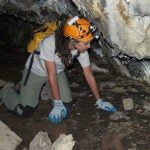
Geology
Similar to other natural resource specialists, geologists investigate the geologic characteristics of land under management to ensure geological factors are considered in management plans and operations. For example, they inspect mining operations, monitor lands leased for mineral extraction, collect and analyze field data, and present their findings to others.
What are the education requirements?
(Verify with OPM: 1350)
Geology Requirements
| Grade | Education Requirement |
|---|---|
| GS03 | One year of higher education |
| GS04 | Two years of higher education |
| GS05 | A degree in geology and 20+ hours of coursework in mathematics, physics, chemistry, biological science, structural, chemical, civil, mining or petroleum engineering, computer science, planetary geology, comparative planetology, geophysics, meteorology, hydrology, oceanography, physical geography, marine geology, and cartography. |
| GS07 | The same four year degree with Superior Academic Achievement (SAA) OR One year of related graduate education |
Which majors at Boise State University can fulfill these requirements?
Geosciences with geology emphasis
What does competitive experience look like?
- Performing field studies to gather geological samples and data,
- Assisting with geological studies and surveys,
- Interpreting and analyzing results to determine the validity and scientific significance of the data.
Where can I gain relevant experience?
- The Geological Society of America – Geoscience Job Board
- Bureau of Land Management – Resource Assistant Internships
- National Park Service – Geoscientists in the Parks Internships
- Idaho Department of Lands – Temporary job openings
- Idaho Conservation Corps – Young Adult Programs
- Student Conservation Association – Internships & Jobs
- America’s Natural and Cultural Resources Volunteer Portal
- River Management Society – Job Board
 Wildlife Biology
Wildlife Biology
Wildlife biologists manage, monitor and improve wildlife habitat by conducting studies and surveys, coordinating efforts with other agencies, tribes, and the public, and working closely with other specialists to develop management plans. Their work is often connected to the Endangered Species Act: for example, a wildlife biologist might research the impact of planned agency actions on the habitat of threatened and endangered species and prepare a biological opinion to document these findings.
What are the education requirements?
(Verify with OPM: 0486)
Wildlife Biology Requirements
| Grade | Education Requirement |
|---|---|
| GS03 | One year of higher education |
| GS04 | Two years of higher education |
| GS05 | A Bachelor of Science in a biological science with
|
| GS07 | The same four year degree with Superior Academic Achievement (SAA) OR One year of related graduate education |
Which majors at Boise State University can fulfill these requirements?
Biology with Ecology, Evolution and Behavior emphasis
What does competitive experience look like?
- Assist in conducting field surveys in remote locations to document and assess animal presence, abundance, reproduction, and population dynamics using established protocols and standard scientific equipment
- Recording and analyzing wildlife data using computer software (such as Microsoft Access, Excel, Word, ArcGIS, Pathfinder Office, or comparable)
Where can I gain relevant experience?
- Fish and Wildlife Service – Resource Assistant Fellows
- Student Conservation Association – Internships & Jobs
- National Parks Service – Research Learning Center Internships & Fellowships
- America’s Natural and Cultural Resources Volunteer Portal
- Bureau of Land Management – Resource Assistant Internships
- Idaho Department of Lands – Temporary job openings
- Idaho Conservation Corps – Young Adult Programs
- River Management Society – Job Board
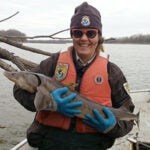
Fish Biology
Fish biologists develop and manage programs to protect and improve fish habitat. They conduct studies and surveys, monitor and evaluate efforts to improve fish habitats, and coordinate with other specialists to develop programs that protect fish habitat and meet other agency goals (e.g., maintain a popular recreation area). Like wildlife biologists, their work often involves managing projects to evaluate potential impacts of planned action to the habitat of threatened and endangered species.
What are the education requirements?
(Verify with OPM: 0482)
Fish Biology Requirements
| Grade | Education Requirement |
|---|---|
| GS03 | One year of higher education |
| GS04 | Two years of higher education |
| GS05 | A Bachelor of Science in a biological science with
|
| GS07 | The same four year degree with Superior Academic Achievement (SAA) OR One year of related graduate education |
Which majors at Boise State University can fulfill these requirements?
Biology with Ecology, Evolution and Behavior emphasis
What does competitive experience look like?
- Field or laboratory work that provided a means of obtaining professional knowledge of the theory and application of the principles of fishery biology and closely related sciences,
- For example, making close observations, taking samples, handling various types of instruments and equipment, assembling fishery data from source materials, and analyzing and reporting findings.
Where can I gain relevant experience?
- Fish and Wildlife Service – Resource Assistant Fellows
- Student Conservation Association – Internships & Jobs
- National Parks Service – Research Learning Center Internships & Fellowships
- America’s Natural and Cultural Resources Volunteer Portal
- Bureau of Land Management – Resource Assistant Internships
- Idaho Department of Lands – Temporary job openings
- Idaho Conservation Corps – Young Adult Programs
- River Management Society – Job Board
 Ecology
Ecology
Ecologists conduct studies and surveys to better understand ecosystems and the interrelationships between the plant and animal species within them. They may spend the morning collecting samples in the field and the afternoon recording and analyzing the day’s sample data in a lab or office. They frequently work with other specialists to develop management plans and engage in outreach to educate the public about their work.
What are the education requirements?
(Verify with OPM: 0408)
Ecology Requirements
GradeEducation RequirementGS03One year of higher educationGS04Two years of higher educationGS05A Bachelor of Science in biology
OR
A BS in another science field underlying ecological research with
30+ credit hours in biological sciences, including
- 9+ credit hours in ecology
- 12+ credit hours in physical and mathematical sciences
GS07The same four year degree with Superior Academic Achievement (SAA)
OR
One year of related graduate education
Which majors at Boise State University can fulfill these requirements?
Biology with Ecology, Evolution and Behavior emphasis
What does competitive experience look like?
- Collecting basic data from field investigations,
- Preparing samples,
- Making observations on biological conditions,
- Assisting in data entry and routine data analysis,
- Searching published technical sources for information on designated topics and preparing summaries for reference of others.
Where can I gain relevant experience?
- Fish and Wildlife Service – Resource Assistant Fellows
- Ecological Society of America – Internships
- American Conservation Experience – Current Opportunities
- Student Conservation Association – Internships & Jobs
- National Parks Service – Research Learning Center Internships & Fellowships
- America’s Natural and Cultural Resources Volunteer Portal
- Bureau of Land Management – Resource Assistant Internships
- River Management Society – Job Board

Wildlife Refuge Management
Wildlife refuge managers oversee all programs active within their refuge, like habitat management and restoration, invasive species management, prescribed fire management, and visitor services planning. Wildlife refuge specialists and other refuge staff work with the refuge manager to develop and manage habitat management plans, visitor services plans, and public use programs (e.g., hunting, fishing). Wildlife refuge specialists and managers utilize collaborative problem solving to develop and improve programs for refuge wildlife and visitors while meeting administrative demands.
What are the education requirements?
(Verify with OPM: 0485)
Wildlife Refuge Management Requirements
| Grade | Education Requirement |
|---|---|
| GS03 | One year of higher education |
| GS04 | Two years of higher education |
| GS05 | A degree in zoology, wildlife management, or an appropriate field of biology that included
|
| GS07 | The same four year degree with Superior Academic Achievement (SAA) OR One year of related graduate education |
Which majors at Boise State University can fulfill these requirements?
Biology with Ecology, Evolution and Behavior emphasis
What does competitive experience look like?
- Planning of operations and maintenance projects,
- Planning, organizing and implementing technical biological work and/or habitat preservation,
- Planning, coordinating and/or administering refuge activities such as farming, trapping, predator control, grazing, hunting, etc.
Where can I gain relevant experience?
- Fish and Wildlife Service – Resource Assistant Fellows
- Student Conservation Association – Internships & Jobs
- National Parks Service – Research Learning Center Internships & Fellowships
- America’s Natural and Cultural Resources Volunteer Portal
- Bureau of Land Management – Resource Assistant Internships
- Idaho Department of Lands – Temporary job openings
- Idaho Conservation Corps – Young Adult Programs
- River Management Society – Job Board
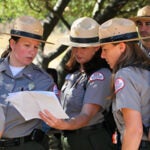
Management and Program Analysis
Management and program analysis professionals develop performance measures for program evaluation, track the progress of programs, recommend changes to programs to improve efficiency and effectiveness, and participate in strategic planning to ensure programs adapt as needs change.
What are the education requirements?
(Verify with OPM: 0343)
Management and Program Analysis Requirements
| Grade | Education Requirement |
|---|---|
| GS03 | One year of higher education |
| GS04 | Two years of higher education |
| GS05 | A four year degree |
| GS07 | The same four year degree with Superior Academic Achievement (SAA) OR One year of related graduate education |
Which majors at Boise State University can fulfill these requirements?
Any major can fulfill these requirements. Recommended majors:
- Environmental Studies
- Business Administration BBA
- Business and Economic Analytics
- Economics
What does competitive experience look like?
- Analyzing problems to identify significant factors, gathering pertinent data, and recognizing solutions,
- Planning and organizing work,
- Communicating effectively orally and in writing.
Where can I gain relevant experience?
- Environmental Protection Agency – Environmental Research and Business Support Internships
- Department of Energy – SULI Internship on Naval Reactors
- Fish and Wildlife Service – Resource Assistant Fellows
- Student Conservation Association – Internships & Jobs
- National Parks Service – Research Learning Center Internships & Fellowships
- America’s Natural and Cultural Resources Volunteer Portal
- Bureau of Land Management – Resource Assistant Internships
- River Management Society – Job Board
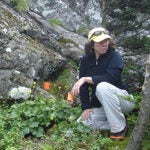 Grants Management
Grants Management
Grants management specialists award and administer federal grants. Typical duties include developing metrics for applicant and awardee evaluation, advising program officials, applicants, and awardees throughout the grant lifecycle, and negotiating terms and conditions of agreements.
What are the education requirements?
(Verify with OPM: 1109)
Grants Management Requirements
| Grade | Education Requirement |
|---|---|
| GS03 | One year of higher education |
| GS04 | Two years of higher education |
| GS05 | A four year degree |
| GS07 | The same four year degree with Superior Academic Achievement (SAA) OR One year of related graduate education |
Which majors at Boise State University can fulfill these requirements?
Any major can fulfill these requirements. Recommended majors:
- Environmental Studies
- Finance
- Business Administration BBA
- Business and Economic Analytics
- Economics
What does competitive experience look like?
- Analyzing financial information to monitor overall financial status of operations and make strategically based decisions,
- Drawing conclusions from financial information and providing financial advice,
- Providing advice and guidance concerning statutes, regulations, policies and procedures related to budgets, contracts or grants,
- Researching, interpreting, and applying regulations, policies and procedures regarding a range of financial services.
Where can I gain relevant experience?
- Environmental Protection Agency – Environmental Research and Business Support Internships
- Department of Energy – SULI Internship on Naval Reactors
- Fish and Wildlife Service – Resource Assistant Fellows
- Student Conservation Association – Internships & Jobs
- National Parks Service – Research Learning Center Internships & Fellowships
- America’s Natural and Cultural Resources Volunteer Portal
- Bureau of Land Management – Resource Assistant Internships
- River Management Society – Job Board
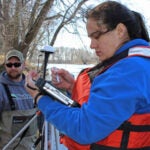
Environmental Protection Specialist
Environmental protection specialists help federal agencies carry out their responsibilities under various environmental laws. Their work generally focuses on one or more of the following activities: developing rulemaking and procedural guidelines, managing compliance programs, developing environmental impact reports, and overseeing environmental programs (OPM, 1995).
What are the education requirements?
(Verify with OPM: 0028)
Environmental Protection Specialist Requirements
| Grade | Education Requirement |
|---|---|
| GS03 | One year of higher education |
| GS04 | Two years of higher education |
| GS05 | A four year degree |
| GS07 | The same four year degree with Superior Academic Achievement (SAA) OR One year of related graduate education |
Which majors at Boise State University can fulfill these requirements?
Any major can fulfill these requirements. Recommended majors:
What does competitive experience look like?
- Assist in environmental problems involving environmental protection,
- Work that demonstrates an understanding of environmental laws and regulations,
- Inspecting hazardous waste sites,
- Reviewing cases of pesticide violations.
Where can I gain relevant experience?
- Environmental Protection Agency – Environmental Research and Business Support Internships
- National Parks Service – Research Learning Center Internships & Fellowships
- Department of Energy – SULI Internship on Naval Reactors
- Fish and Wildlife Service – Resource Assistant Fellows
- Student Conservation Association – Internships & Jobs
- America’s Natural and Cultural Resources Volunteer Portal
- Bureau of Land Management – Resource Assistant Internships
- River Management Society – Job Board
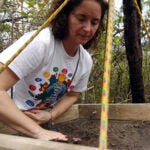
Misc. Administration and Program
This occupational series includes diverse careers that are in demand at the Bureau of Land Management, Bureau of Reclamation, and National Park Service. Because it functions as a catch-all series, examples of related specialized experience vary widely. Many positions listed under this series are not related to natural resource management, so filtering your job search by agency is recommended.
Planning and environmental coordinators may provide NEPA program analysis, training, guidance and oversight, while recreation management specialists and program managers are often responsible for implementing specific land use programs, managing permitting and NEPA compliance.
What are the education requirements?
(Verify with OPM: 0301)
Misc. Administration and Program Requirements
| Grade | Education Requirement |
|---|---|
| GS03 | One year of higher education |
| GS04 | Two years of higher education |
| GS05 | A four year degree |
| GS07 | The same four year degree with Superior Academic Achievement (SAA) OR One year of related graduate education |
Which majors at Boise State University can fulfill these requirements?
Any major can fulfill these requirements. Recommended majors:
What does competitive experience look like?
Competitive experience can differ widely in this series. Broadly speaking, work that involves project management, interpreting relevant statutes and regulations, and exposure to permitting procedures is likely to be considered relevant.
Where can I gain relevant experience?
- Environmental Protection Agency – Environmental Research and Business Support Internships
- National Parks Service – Research Learning Center Internships & Fellowships
- Department of Energy – SULI Internship on Naval Reactors
- Fish and Wildlife Service – Resource Assistant Fellows
- Student Conservation Association – Internships & Jobs
- America’s Natural and Cultural Resources Volunteer Portal
- Bureau of Land Management – Resource Assistant Internships
- River Management Society – Job Board